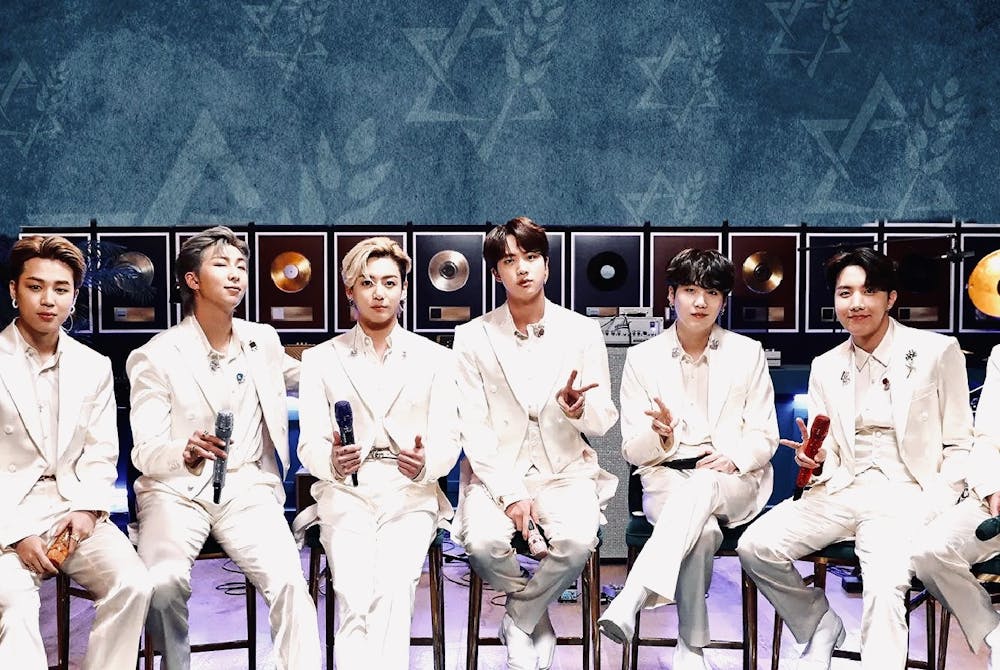K–Pop has had another Nazi scandal.
In this case, Sowon, a member of K–Pop girl group GFriend posted an image of herself embracing a mannequin dressed in Nazi attire to her Instagram. The backlash was swift and immediate—Sowon deleted the image, and her management company, Source Music, released an apology the very next day.
The statement is reminiscent of many typical K–Pop or broader celebrity apologies: It comes from the company as opposed to the artists, laments upon the ignorance that led to such a thing being posted, and fails to state exactly what they’re apologizing for. “Sowon was also very surprised to learn about the meaning of the photo, and deleted it immediately,” Source Music stated. (Sowon is likely aware of Nazi Germany—in a live broadcast with fans, group member SinB revealed that Sowon’s name was saved in her phone as “Kitler,” a portmanteau of Kim, Sowon’s surname, and Hitler.)
To suggest that K–Pop, or, to boil it down almost over–simplistically, Korea, is unaware of World War II would be incorrect. Many notable scandals have occurred when various Korean celebrities, particularly Korean American ones, engage with rising sun iconography, the symbol of Imperial Japan and an emblem of the atrocities that Japan committed, such as the Nanjing Massacre or the sexual enslavement of Korean women. Tiffany, formerly of Girl’s Generation, was once criticized for using a Snapchat filter with the rising sun emblem on it, and actor Steven Yeun was criticized for liking an Instagram post where someone was wearing a shirt with the symbol.
The juxtaposition of these types of scandals—anger directed against Imperial Japan while posting an image with Nazi iconography—in K–Pop are formed from, or at least highlight, certain disconnects in histories. One other example of such an incident is when BTS once did a photoshoot beside a Holocaust memorial and photographed rapper RM wearing a Nazi–inspired hat. These old photos were cycled through the internet again in 2018 after member Jimin was photographed wearing a shirt celebrating the atomic bombings of Japan (where an estimated 70,000 Koreans were exposed to the blast and 40,000 are estimated to have died instantly).
In both broader situations of responses to Nazi Germany or Imperial Japan, ignorance is the greatest tool of exoneration and criticism. Sowon, BTS, and the companies behind them, Source Music and Big Hit Entertainment, should have known better than to take images next to Nazi iconography, or maybe they were genuinely unaware of the gravity of the situation. Tiffany and Steven Yeun should have known the history of the rising sun image, or they were born in America and were maybe unaware of the weight of the images.
Perhaps the issue is with education. It's clear that American schools certainly don’t teach the history of Imperial Japan for any more than one week, and, at the same time, debating the “validity” of the atomic bombings is a common classroom exercise. It is a far, far reach to say that a lackluster high school education is the reason for, say, posting an image hugging a Nazi soldier and then failing to deliver a personal apology for doing so.
Either way, the failure of education is something that has happened, and, on an international scale, something largely outside of fans’ control. The question then turns to how a celebrity might genuinely learn from such an experience or whether or not it’s even possible for fans and consumers to expect such a thing.
As it stands, especially with current fan culture, the possibility of celebrities and idols who are not actively seeking to change on their own to genuinely learn from their mistakes seems more and more far–fetched. It’s not that we need more kindness, necessarily—those who are hurt by things like supporting Nazis and Japanese imperialism are never obliged to give the celebrity the benefit of the doubt or accept their apologies—or because of any so–called 'cancel culture,' but instead, celebrities are not compelled to learn from their mistakes because of the stan culture surrounding celebrities and how criticism is taken.
K–Pop especially provides an interesting microcosm for these issues. Blame shifts from creator to company and back again. As in the above tweet, Sowon is not actually from Big Hit Entertainment; she’s managed by Source Music, so you can’t attack Big Hit. In the case of BTS, the band is often lauded by fans as being in control of their own image and music in an industry where that is rare. However, in the case of their Holocaust photoshoot, it was actually the fault of the company who asked for such a thing.
There are fans who would jump on anyone who dares to criticize their idol. At the same time, there are people who will genuinely take atrocities committed by an idol and crow about it, declaring that “they knew it from the beginning” and to “stan [x group] instead.” Wrongs are turned into pieces to participate in fandom wars, and the initial horribleness of everything that has occurred is forgotten. K–pop is rife with issues such as anti–Blackness, racism, and sexism, but it’s difficult to achieve any sort of productive conversation about those topics, nor would celebrities be able to parse through anything said (presuming that they, of course, want to, considering that they have little to no incentive for doing so).
As the blame game is played by fans to either exonerate or condemn—"It's the company. No—it's the idol. No…"—it is not a surprise that things like this just keep on happening and likely will continue.







